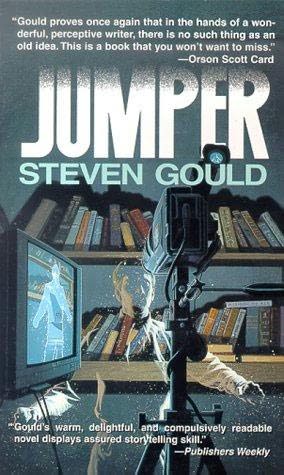 Director Dough Liman has stated that, “The script that I read from David Goyer was so fresh and got me immediately interested in the movie but when you take a book and turn it into a movie I’m really someone who believes in throwing the whole thing out and reinventing it as a movie, and in this particular case there was a villain in David Goyer’s script that dealt with terrorism and it got a little conventional for my tastes.”
Director Dough Liman has stated that, “The script that I read from David Goyer was so fresh and got me immediately interested in the movie but when you take a book and turn it into a movie I’m really someone who believes in throwing the whole thing out and reinventing it as a movie, and in this particular case there was a villain in David Goyer’s script that dealt with terrorism and it got a little conventional for my tastes.”So he loved the book, he liked Goyer’s script, but then ditched everything because you know…reasons.
The basic premise of both the book and the movie is that there is a young man who unexpectedly discovers the ability to teleport but beyond that, the two diverge rather wildly. In the book, seventeen-year old David Rice lives with his abusive alcoholic father, his mother having fled when he was twelve, and then one night his father is about to take the belt to him“You promised not to use the buckle” David suddenly finds himself in the school library. He assumes that he must have blacked out and somehow made his to the library, so he decides to not return home but instead run away. While on the road he is offered a ride by a trucker who takes Davey to a secluded spot so he and his friends can rape him, and then once again Davey finds himself suddenly inside his school library, the one place he’s always felt safe.
In the movie fifteen-year-old David (Max Thieriot) gives a snow globe to Millie (Annasophia Robb), the girl he has a crush on, but then school bully Mark (Jesse James) grabs the snow globe and chucks it out onto the ice of the nearby river. Idiot David goes out onto the ice to retrieve the snow globe and of course end up crashing through the fragile ice, but instead of an icy death, David finds himself in the public library (along with a good portion of icy water). In the book, these appearances in the library take place while it’s closed but in the movie, it is during open hours where surprisingly no one seems taken aback by a person magically showing up in a massive splash of water.
He doesn’t even get a “Shhh!” from the librarian.
David arrives home soaking wet, where he encounters his angry father (Michael Rooker), who yells at his son for not responding to his questions and tracking water all over the floor. Gone is the physical abuse from the book instead we get a character who is at most a bit of a jerk and possibly a bit of a drinker. I guess the filmmakers didn’t want to get into such intense subject matter as their film was basically a superhero movie while the book had teleportation as an analogy for escape. We certainly wouldn’t want something as off-putting as parental abuse and rape in your summer blockbuster. The movie is basically a boy's wish-fulfillment fantasy, he runs off to New York and after a brief teleportation training montage he almost immediately decides to rob a bank, stating in the voice-over, “I was fifteen, come on, what would you have done?”“Eat your heart out Butch and Sundance.”
In the book, David spends days trying to find work but because he fled home without a Birth Certificate and has no GED or Social Insurance Number he is unable to find employment so robbery seems like his only option, that is unless he wants to end up living on the street. He also only robs one bank by teleporting into the vault while in the movie it’s clear he has done this multiple times, and because movie David is an entitled arrogant douchebag he leaves I.O.U notes behind even though he has no intention of ever honoring them. What a dick.In the book, he never returns the stolen money to the banks but he does end up earning money with his powers and later he gives that same amount of money that he stole to numerous charities. This is not a character trait you will find in the movie version. Things only get worse when David grows up and is replaced by actor Hayden Christensen who brings unparalleled levels of smugness to the character. In one particularly bizarre scene David is watching the news on television, from his plush and swank penthouse suite, where a reporter covering a flood talks about people who are trapped by the raging waters, “The question now Pat, is what will happen to these people? It would take a miracle to get to them.” That seems like a perfect set up for David to use his powers for good, so does our hero teleport in so as to save the lives of those poor people? No, of course not, that’s not the kind of hero we’re dealing with.
“I’d go but the Saved By The Bell marathon is about to start.”
Now, book David isn’t rushing off to fight crime as there is no time jump to bring in an older more bankable actor to player David, instead he remains a seventeen-year-old kid alone in New York trying to figure shit out. He spends his time setting up a nice apartment, researching the possibility that there are other Jumpers out there, and teleporting into Broadway shows because why not. It’s during an intermission of Sweeney Todd: The Demon Barber of Fleet Street that he first meets the love of his life Millie, she’s a college girl visiting New York City and not a girl he had a crush from his hometown as portrayed in the movie. The book goes into detail on their relationship; with Millie being hesitant about dating a younger man and David pointing out that if their ages were reversed nobody would have a problem with it. She is even more uncomfortable when he gives her expensive gifts and flies across the country (he actually teleports but he can't exactly tell her that) to visit her in college as she feels this puts pressures her into have sex with him.In the movie, David pops back to his hometown, after being gone for eight years, finds Millie at the bar she works at, and then he asks her if she would like to go to Rome with him because he remembers she had a thing for traveling. Not being a woman I’m not exactly sure what my reaction would be to this but I’d like to think it would be something along the lines of “Are you fucking crazy?” But Millie, now being played by Rachel Bilson, thinks this is just awesome and ten hours later they are fucking in their hotel room in Rome.
Isn’t entitled sex the best sex ever?
The movie version of Millie is bloody awful as she has almost no character development and serves mostly to be a damsel in distress, and when she learns that his “banking interests” is actually bank robbing she seems more put out that he lied to her and not the fact that he is a bloody bank robber. Millie in the book falls in love with David over time, not due to a trip to Rome, and she does break up with him when she discovers that he has been lying to her about certain things. A cop who David ratted on for beating his wife starts investigating him and when he contacts Millie she then starts to figure there is more going on with David than she realizes, but they eventually reconcile because they do truly love each other. While the movie version of Millie I can see no reason for her to be hanging around with David by the end of the film, all he does in the movie is lie to her, has sex with her once, and he puts her in constant danger. And just what are the dangers?The dangers that David and Millie face are easily the biggest changes from book to movie; in Steven Gould’s book David eventually reconnects with his mother, learning that she fled after being beaten so badly that her faced needed reconstructive surgery, but just when things were looking great life takes a big dump on David when terrorist hijack a plane his mother was on and she is killed. David goes on a one-man war on terrorism in his mission to find the one responsible for his mother's death, teleporting into hostage situations, grabbing the hijackers and teleporting them out to be dropped in a pit located in the middle of the desert
Note: The pit does have water at the bottom and a small island so David isn’t a murdering vigilante, though one terrorist dies when his suicide vest goes off when David drops him.
It’s these very public acts of teleportation that draw the eye of the NSA and they begin to hunt David. When the NSA discovers who he is they learn about Millie and take her into custody in the hopes of using her to squeeze cooperation out of David, but instead he starts snatching and teleporting their agents to random spots all over the globe. Eventually, David and the NSA reach a détente with them releasing Millie and David agreeing to occasionally help the government with such things as extractions and the like. This is the element of the book that Doug Liman found to conventional, so what did he replace it with?
Samuel “Motherfucking “Jackson, that's what.
Gone are those pesky terrorist who have become so blasé and in place of them we get the Paladins, a group of religious extremists who have been tracking down and killing Jumpers over the centuries. The reasoning for this is that they believe only God should have the power to be anywhere at once thus a Jumpers very existence is blasphemous. The head Paladin is Roland (Samuel Jackson) who at one point explains to David that all Jumpers eventually go bad and so they must be killed for the betterment of mankind. David tries to explain to Roland that he is different and that he wouldn’t hurt anybody (David apparently believing bank robbery to be one of those victimless crimes). The problem with this is that we only see three Jumpers in this movie; a guy we don't know being hunted and brutally murdered by the Paladins in a jungle, Griffin (Jamie Bell) a Jumper who saw his parents murdered by Paladins when he was five and now hunts them down himself, and lastly there is David who even though he robs the occasional bank and picnics on the Sphinx he’s not really supervillain material. So from this we are to take it that the Paladins are an evil extremist organization, that they were part of the Inquisition and the witch hunts certainly bares that point out, but then we learn that David’s mom (Diane Lane) is also a Paladin and that changes everything. Apparently when David was five he teleported and her only one choice was to either kill her own son or leave.Wow, let’s unpack that little revelation:
• Mary Rice is a Paladin, a member of a super religious secret society, but she lives with alcoholic Michael Rooker in Anne Arbor.
• We must assume Jumpers are rare or the world would know about them yet a member of the Paladins gives birth to one. What are the odds on that happening?
• Roland doesn’t know that his co-worker Mary Rice is David Rice’s mother until he visits David’s homestead and sees a picture of Mary on the mantelpiece. So I guess ancient religious organizations don't do background checks?
• Did Mary keep her family life secret from the Paladins? If so why? Until her child revealed himself to be a Jumper she’d have had no reason to.
• Mary uses her position within the Paladins to help her son escape their clutches. I guess she still has a soft spot for the son she abandoned?
• When David confronts his mother at the end of the movie she offers him a “Head start” because she does still love him. So she still plans on hunting and killing her son because he is a blasphemous Jumper and an affront to God? Her idea of love is giving him a fighting chance? I hope she doesn't expect a Mother's Day card anytime soon.
So Doug Liman and company took a character who originally was a woman that had to abandon her son to save her own life, feeling horribly guilty for this act ever since, and who once finally reconnecting with her son is violently taken away from him by an act of terrorism, and the movie turned that poignant and tragic character into a flip-flopping villain with no clear motivation. Yeah, Doug, I’d say that’s unconventional but also incredibly stupid.
“My son is a Jumper and my daughter is dating a vampire.”
Director Doug Liman and screenwriter Simon Kinberg had hoped this movie would be successful, having planned out two sequels, but in doing so and getting caught up in all this bullshit Paladin mythology they forgot to make a cohesive movie. None of the characters are remotely likable, Jamie Bell’s Griffin comes closest to being likable until he out of the blue decides to sacrifice David’s girlfriend so that he can blow up some Paladins, and the teleporting science of this movie is as inconsistent as it is moronic.Neither the book nor the movie explains why or how there are Jumpers yet in the book we at least learn that David is basically opening up a "David shaped doorway" which moves around him as he passes though. This why there is no "Bamf" or pop of displaced air when he teleports. In the movie, David sometimes teleports as if he is just simply vanishing into thin air but at other times his teleports destroy his surroundings. Is this caused by him being emotionally distressed when jumping? When dealing with a fantastic story element it is important to set rules and remain consistent, this movie fails miserably at this. It’s also never explained as to how Griffin was able to stalk David across the globe. In the early part of the movie, we spot Jaimie Bell hanging around watching David but we never learn how he was tipped off to David being a Jumper in the first place or how he can keep tabs on him.
Maybe he thought he was cute and just randomly decided to stalk him.
I don't see why anyone would stalk David as not only is he an insufferable git he also isn’t too bright; when Roland first tries to capture David in his penthouse apartment what does our supposed hero do? Well, he heads home so that he can hit on his high school crush from eight years ago. That's just brilliant, that is. I hate to Monday morning quarterback but If Samuel Jackson was to show up at my apartment I’d probably chose anywhere on the planet other than my old home town to run to. Not only does this increase the odds of you being tracked down but you also put those you supposedly love in jeopardy. And to cement the fact that David is a colossal moron he almost immediately gets into a fight with his old high school bully and his answer to this confrontation is to teleport the jerk into a bank vault he previously robbed. Way to announce to the world your teleportation ability and also tip off the villains as to where you are. He also just handed his hunters a key witness, that's genius tactical thinking that is.“He lives in Anne Arbor, his dad is a drunk and he’s dating a girl named Millie.”
Now in the book there was a scene where David did visit his hometown, with of course no one hunting him at the time, and at a house party a jealous boyfriend attacks David for talking to his girl (not Millie just a girl he knew from high school), and while fighting in a dark room David teleports the drunken idiot to the airport at the edge of town and leaves him there. No one believes the guy when he later claims to have been abducted by aliens. David in the book is smart, he never teleports where he can be seen, and he certainly would never have broken into the Coliseum in Rome to impress a girl as movie David does in the movie.I’m sure no tourist or security guards will notice him up there either.
In the books, David can only teleport people, or things that he can lift, while in the movie Griffin reveals that if something is in motion it doesn’t matter how big it is he can teleport it. This leads to visually stunning scenes where cars and buses fly through the air against all sense of logic or physics. I don’t think a filmmaker should necessarily be restricted by the rules put in place by the author but if you are going to change something so drastically it’s best if you have a better reason for doing so than “It looks cool.”Doug Liman states that, “This is a hundred percent Steven Gould story, just reinvented for a movie” and by that he means he and Kinberg butchered it beyond recognition and then pissed on its remains. Not only is this “adapting” the book a crying shame but completely unnecessary; they didn't need Gould's book to make a movie about a guy who can teleport, as that certainly isn’t an original concept, and the changes they made from book are so drastic that they could have simply changed the character names and called the movie “Teleporter” and not have had to pay the author a dime. Sure the book has a notable fan base, and Hollywood is all about name recognition, but in this case I believe all parties would have been better off cutting ties and doing their own thing. Well Steven Gould would have lost a paycheck so I guess he would have missed out on that.
Note: Doug Liman is returning to the world of Jumper but instead of movie sequels this will be shown on You Tube Red and will be based on the character Millie, David's daughter from the third book, but the series Impulse looks to be, once again, very different from the source material.
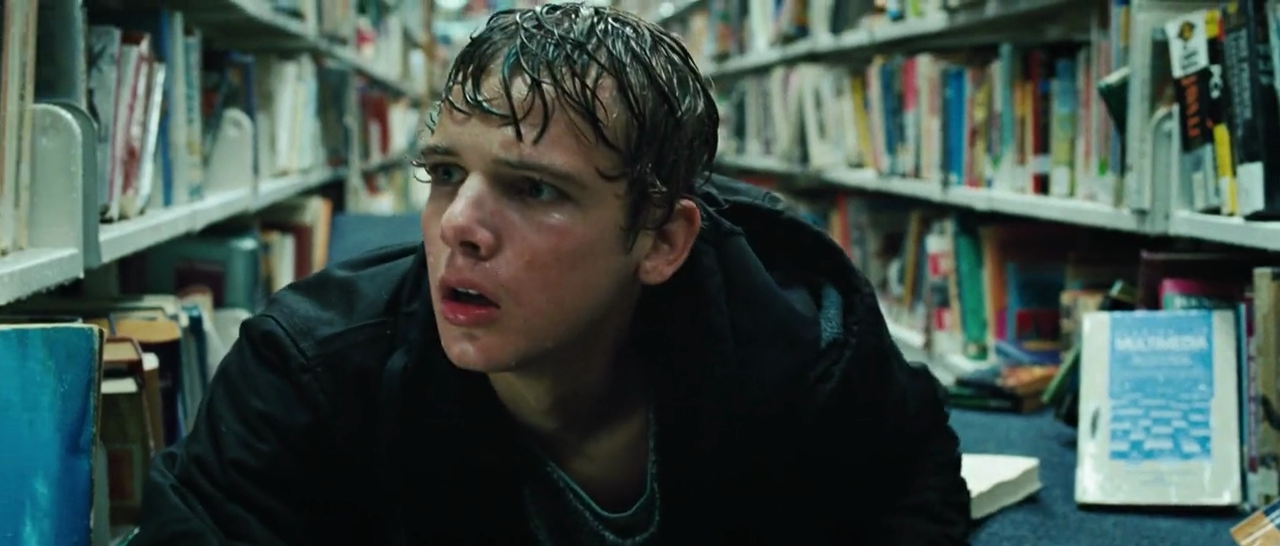
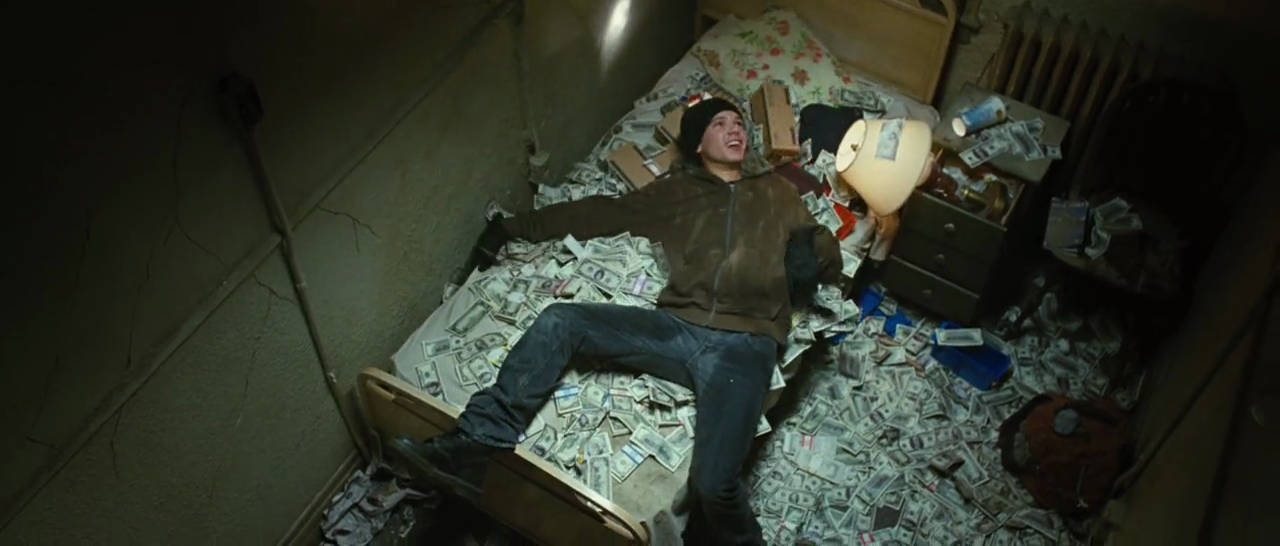
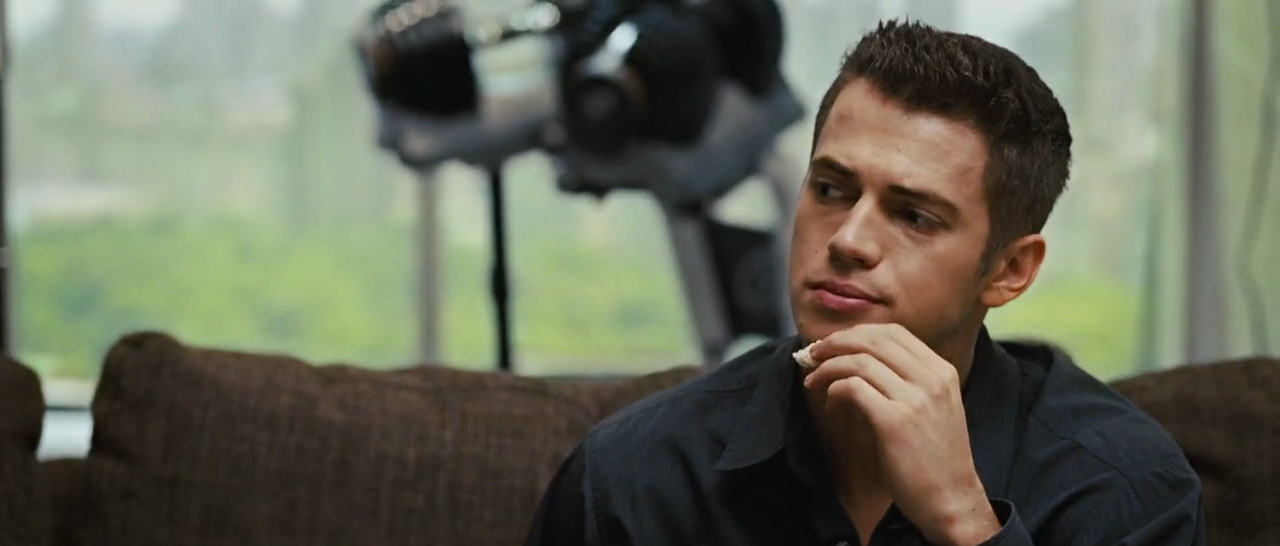

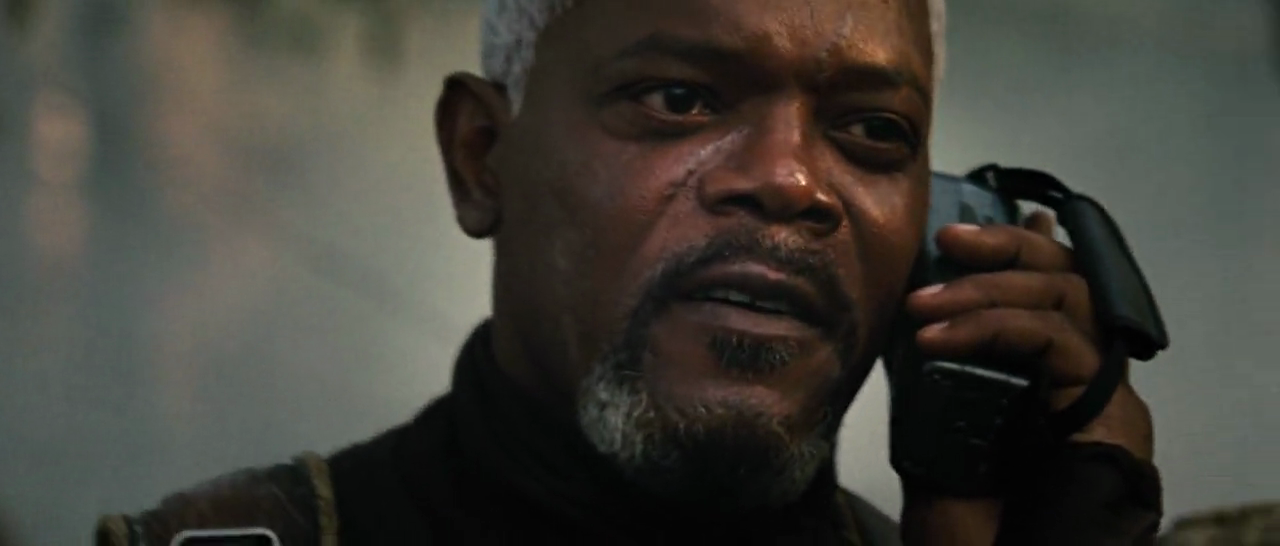


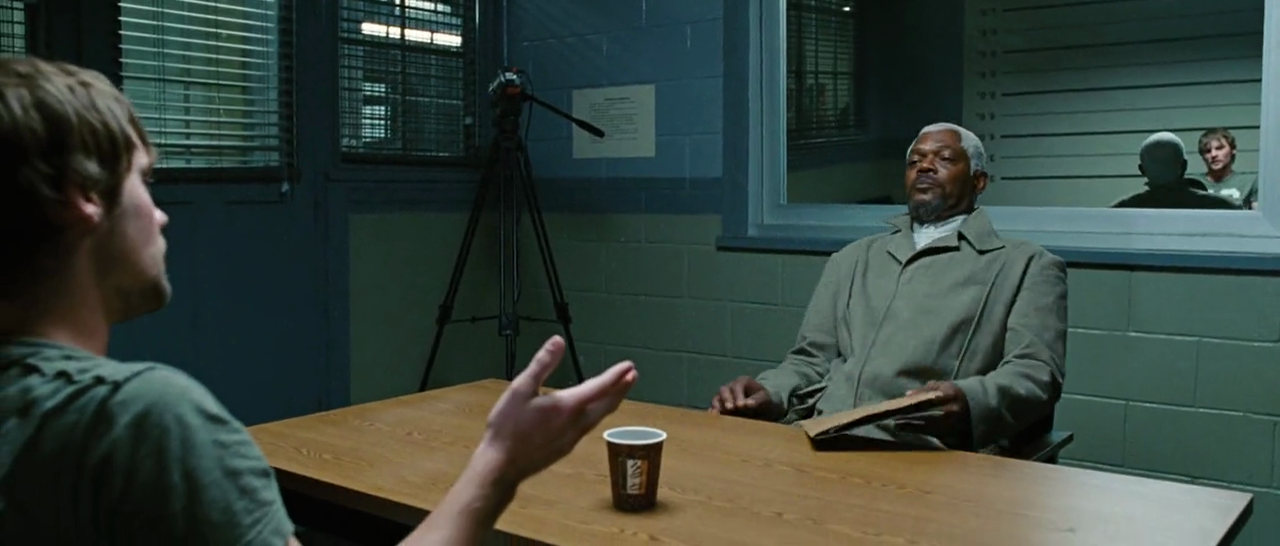

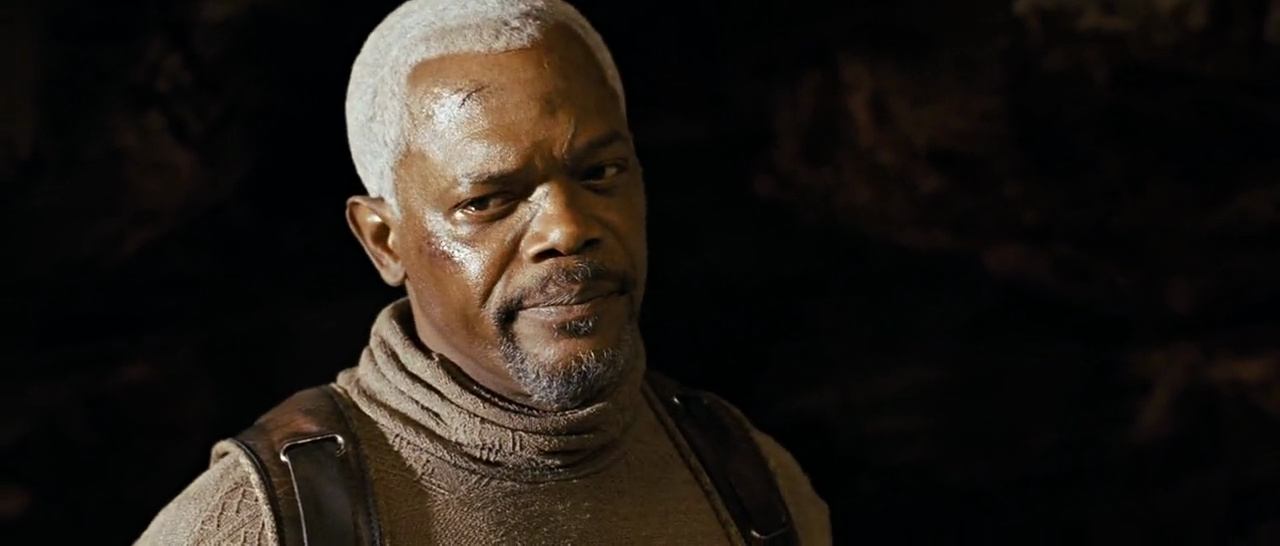
No comments:
Post a Comment